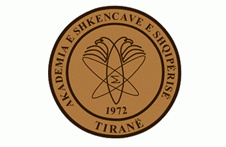


Albert Einstein published his seminal paper on the theory general relativity 100 years ago.
To celebrate the event, the Albanian Academy of Sciences organized an international conference at their headquarters in Tirana on 27 November 2015. While most of the presentations focused on Einstein’s scientific ideas and their implications for modern theoretical and experimental physics, IAP Coordinator Peter McGrath was invited to speak on Einstein’s legacy in the world of policy and diplomacy.
“My life is divided between equations and politics,” said Einstein, and one if his first forays into politics was to endorse a letter to US President Roosevelt on the eve of World War II advising him to consider a research project to develop the atom bomb. The so-called Manhattan Project was the result.
McGrath compared the scientific efforts that went into the Manhattan Project and other mega-science projects such as the Apollo moonshot with the scientific base that needs to be generated to tackle today’s Sustainable Development Goals (SDGs) – even if the motives are and the end results will be very different.
Having seen the power of nuclear weapons, however, in 1955 Einstein joined with Bertrand Russell and others to: “Urge the governments of the world to realize, and to acknowledge publicly, that their purpose cannot be furthered by a world war, and we urge them, consequently, to find peaceful means for the settlement of all matters of dispute between them.”
Such advice depended, again as detailed in the Russell-Einstein Manifesto: “Upon the extent of the particular expert’s knowledge.” In other words, on science-based evidence free from political or commercial influence – similar to the role played by academies of science.
McGrath concluded, based on evidence of Einstein’s humanity and the other political causes he fought during his life, that if Einstein were alive today, he would be a ‘science diplomat’, turning his energies to ensuring a more equitable planet for all – a planet on which 7 billion people can live free from poverty, hunger and repression.
“We cannot solve our problems with the same reasoning we used to create them,” is one of Einstein’s many memorable quotes. He would surely be applying his renowned novel thinking to tackling the SDGs.
For the programme of the event, follow the link HERE
For the full text of McGrath’s presentation, follow the link HERE